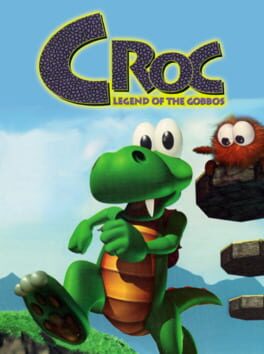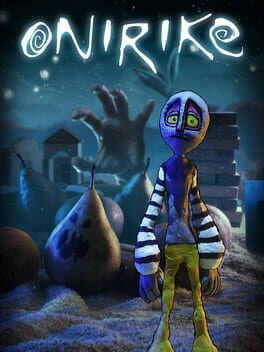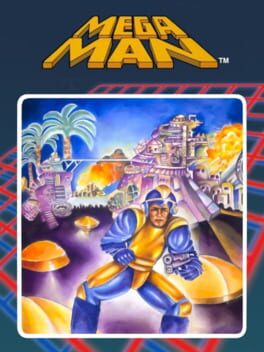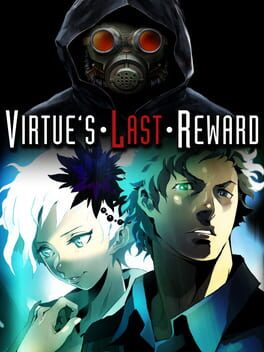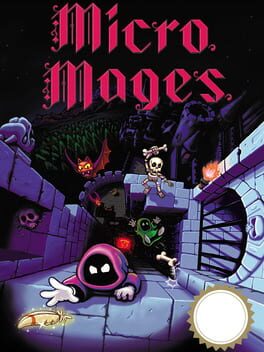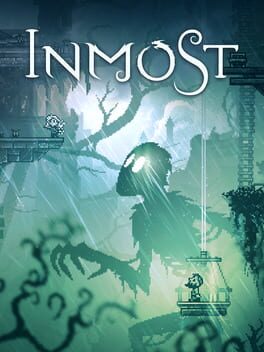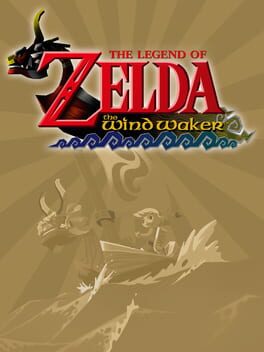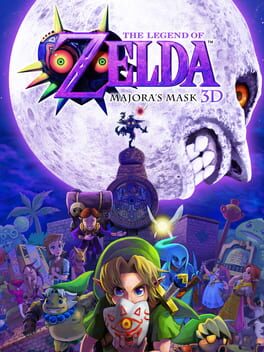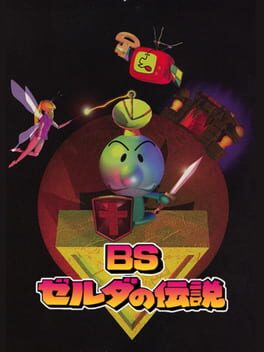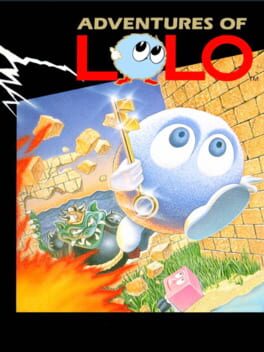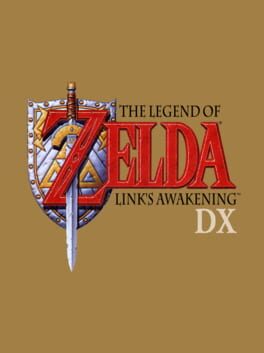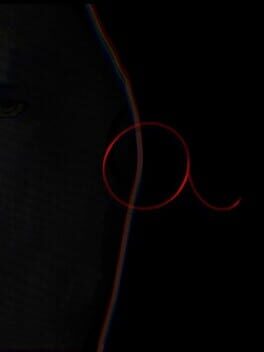NaoisTheGuardian
Adorable, great music, and pretty fun too.
The tank controls actually work pretty well, as long as the camera stays behind croc, but will take a little getting used to for new players.
The production quality is mostly very good, with great models, animations, interesting level ideas, etc.
The only real issue is that some of the later levels lack a bit of polish, and so can be frustrating or confusing.
Otherwise, a lot of fun, and well worth playing.
The tank controls actually work pretty well, as long as the camera stays behind croc, but will take a little getting used to for new players.
The production quality is mostly very good, with great models, animations, interesting level ideas, etc.
The only real issue is that some of the later levels lack a bit of polish, and so can be frustrating or confusing.
Otherwise, a lot of fun, and well worth playing.
2021
1987
Very polished presentation for an NES game from 1987.
A lot of fun, even if some of its jank is frustrating, and it has no save/password system.
I played on the legacy collection, and I used save states only after completing a level to emulate having a save functionality, which I think is a good compromise.
A lot of fun, even if some of its jank is frustrating, and it has no save/password system.
I played on the legacy collection, and I used save states only after completing a level to emulate having a save functionality, which I think is a good compromise.
While this game makes no improvement on the puzzle gameplay of 999, and the story is overall pretty unsatisfying, I'll give it some credit for taking the high concept of 999 and making it a core element of the game.
The most frustrating thing for me is that the end of the game didn't really feel like a proper ending. I'll play Zero Time Dilemma soon, but even if that ties up all the loose ends, it doesn't really reduce the disappointment of this game's ending.
The most frustrating thing for me is that the end of the game didn't really feel like a proper ending. I'll play Zero Time Dilemma soon, but even if that ties up all the loose ends, it doesn't really reduce the disappointment of this game's ending.
2019
An interesting early case in the recent wave of new games for old consoles. Its design is very modern in many ways, but I think its developers understand and love classic games enough to make this work. Definitely worth playing, even just to see a great example of how you might achieve a good modern-retro game.
I played it singleplayer, but it might be better multiplayer; if I ever play with friends, I'll come back and extend my review.
I played the NES version on an emulator on my PSP, and details were sometimes a little too small, so I'd recommend playing on a larger screen than that.
I played it singleplayer, but it might be better multiplayer; if I ever play with friends, I'll come back and extend my review.
I played the NES version on an emulator on my PSP, and details were sometimes a little too small, so I'd recommend playing on a larger screen than that.
2019
A visually beautiful adventure platformer. The story was handled a little clumsily, but the abstract imagery used for most of the game kept me interested up until near the end.
I understand the game was trying to tell a story in the real world, but I kinda wish more stories were willing to respect the fantasy worlds they construct rather than simply making everything a metaphor for something else.
I think that fans of Limbo and Inside will find a lot to love about this game, even with its drawbacks.
I understand the game was trying to tell a story in the real world, but I kinda wish more stories were willing to respect the fantasy worlds they construct rather than simply making everything a metaphor for something else.
I think that fans of Limbo and Inside will find a lot to love about this game, even with its drawbacks.
A beautiful game, and incredibly polished. This is probably the first game in the series that wouldn't alienate modern audiences.
That being said, it was much too easy. I beat the game without dying (although I did need bottled fairies a couple of times), and I didn't feel particularly accomplished for having completed any part of it.
As a result, I had to find my enjoyment less in the combat and more in the world. Solving mysteries and problems around the world is at times tedious, but most often fun.
All this said, despite some quibbles, I love this game for all of the ways it changes the Zelda formula: the new art style, the story, and the open world.
That being said, it was much too easy. I beat the game without dying (although I did need bottled fairies a couple of times), and I didn't feel particularly accomplished for having completed any part of it.
As a result, I had to find my enjoyment less in the combat and more in the world. Solving mysteries and problems around the world is at times tedious, but most often fun.
All this said, despite some quibbles, I love this game for all of the ways it changes the Zelda formula: the new art style, the story, and the open world.
Coming off the back of Ocarina of Time, it took me a little while to get what this game was doing.
It starts out very slowly, and takes quite a while to get to any traditional Zelda gameplay. Zelda games up to this point had carved out a pretty particular niche for themselves, and this game differed so much from that in the first few hours that it might be argued that it doesn't qualify as a Zelda game.
What it does qualify as is a brilliant game. The entire experience feels more full than Ocarina. Every sidequest feels worth doing for its own sake, just to help people out. The dungeons, while fewer, utilise more interesting and unique mechanics.
The masks don't merely replace the functionality of the tunics from OoT, they supersede them. Each of the transformations have multiple different abilities, including major additions to movement. And that's only the three major masks.
The ocarina is (ironically) much more useful in MM, rupees actually feel useful and important (and sometimes, scarce), the world is filled with all sorts of interesting and fun challenges, etc.
All that is to say, this game is a major improvement on its predecessor. I don't know if I can think of a single thing that I like more about OoT.
I highly recommend this game to everyone. Possibly my favourite Zelda game so far.
It starts out very slowly, and takes quite a while to get to any traditional Zelda gameplay. Zelda games up to this point had carved out a pretty particular niche for themselves, and this game differed so much from that in the first few hours that it might be argued that it doesn't qualify as a Zelda game.
What it does qualify as is a brilliant game. The entire experience feels more full than Ocarina. Every sidequest feels worth doing for its own sake, just to help people out. The dungeons, while fewer, utilise more interesting and unique mechanics.
The masks don't merely replace the functionality of the tunics from OoT, they supersede them. Each of the transformations have multiple different abilities, including major additions to movement. And that's only the three major masks.
The ocarina is (ironically) much more useful in MM, rupees actually feel useful and important (and sometimes, scarce), the world is filled with all sorts of interesting and fun challenges, etc.
All that is to say, this game is a major improvement on its predecessor. I don't know if I can think of a single thing that I like more about OoT.
I highly recommend this game to everyone. Possibly my favourite Zelda game so far.
1995
Such a delightful experience! It's a great way of re-experiencing the classic. It makes me wish that there were similar live broadcast experiences today. I recommend you play the BS Zelda Restoration with the English dub MSU-1 patch. You must experience the bad voice acting and 90s club remixes of zelda music for yourself.
While it might not have been as fun as previous entries, it makes up for this in immersion.
A cinematic experience unlike any game beforehand, you are drawn into a world that feels real.
I'd like to study the history of 3D games leading up to and following OoT, but I wouldn't be surprised if I discovered that just about every 3D game following it owes it for its advances to gameplay and immersive storytelling.
I recommend you play this game after having a grounding in the history of games leading up to this point. Make a list of games you want to play on NES, SNES, and N64, and play them in chronological order.
A cinematic experience unlike any game beforehand, you are drawn into a world that feels real.
I'd like to study the history of 3D games leading up to and following OoT, but I wouldn't be surprised if I discovered that just about every 3D game following it owes it for its advances to gameplay and immersive storytelling.
I recommend you play this game after having a grounding in the history of games leading up to this point. Make a list of games you want to play on NES, SNES, and N64, and play them in chronological order.
1989
Neat little game. Doesn't really meet the standards of modern puzzle games, e.g. some of the levels are frustratingly hard to pull of consistently due to the dependence on somewhat unpredictable enemy AI, level difficulty really jumps all over the place, and the game could be improved a lot just by adding a different sprite for the framers which give you ammunition and by letting you know how many framers you need to activate powers.
That being said, it's overall pretty fun, and some of the levels have interesting solutions, especially a lot of the ones involving Medusas. I wish I had this game as a child, I think I would have enjoyed it. It was very interesting to go back in time to some early puzzle games and see some of the people trying to experiment with what variations you could make to the sokoban formula.
That being said, it's overall pretty fun, and some of the levels have interesting solutions, especially a lot of the ones involving Medusas. I wish I had this game as a child, I think I would have enjoyed it. It was very interesting to go back in time to some early puzzle games and see some of the people trying to experiment with what variations you could make to the sokoban formula.
A true delight.
It takes the formula of "A Link to the Past" and perfectly reinterprets it for handheld.
Every Dungeon is fun and interesting, and even though they may take a while, never drag.
The addition of the Roc's Feather makes a surprisingly big difference; the movement felt more fluid and fun than any previous game.
The world and story, while bite-sized, had a surprising emotional depth, and I still wonder what the ramifications the Wind Fish has on Zelda lore.
Last of all the wonderful soundtrack ties it all together perfectly.
I don't have much to say about its shortcomings. There are maybe one or two points where the puzzles are a little unclear, and it would be nice to have more buttons to map items to, but overall, the game is nearly flawless.
I've probably rated it higher than some other Zelda games which I think are better games, but I had so much fun with it that I couldn't rate it objectively.
It takes the formula of "A Link to the Past" and perfectly reinterprets it for handheld.
Every Dungeon is fun and interesting, and even though they may take a while, never drag.
The addition of the Roc's Feather makes a surprisingly big difference; the movement felt more fluid and fun than any previous game.
The world and story, while bite-sized, had a surprising emotional depth, and I still wonder what the ramifications the Wind Fish has on Zelda lore.
Last of all the wonderful soundtrack ties it all together perfectly.
I don't have much to say about its shortcomings. There are maybe one or two points where the puzzles are a little unclear, and it would be nice to have more buttons to map items to, but overall, the game is nearly flawless.
I've probably rated it higher than some other Zelda games which I think are better games, but I had so much fun with it that I couldn't rate it objectively.
(Review of the original NDS version, which didn't include the flow chart feature)
The puzzles are fun, if a little too simple.
The concept at the center of the story is great, but good luck getting all the endings to see the whole story. There's really no logic to which actions lead to which endings, so you'd better just look it up.
The gap between the gameplay and the great premise is the most disappointing thing for me.
More detail and comparison to Danganronpa on my blog.
The puzzles are fun, if a little too simple.
The concept at the center of the story is great, but good luck getting all the endings to see the whole story. There's really no logic to which actions lead to which endings, so you'd better just look it up.
The gap between the gameplay and the great premise is the most disappointing thing for me.
More detail and comparison to Danganronpa on my blog.
2021
